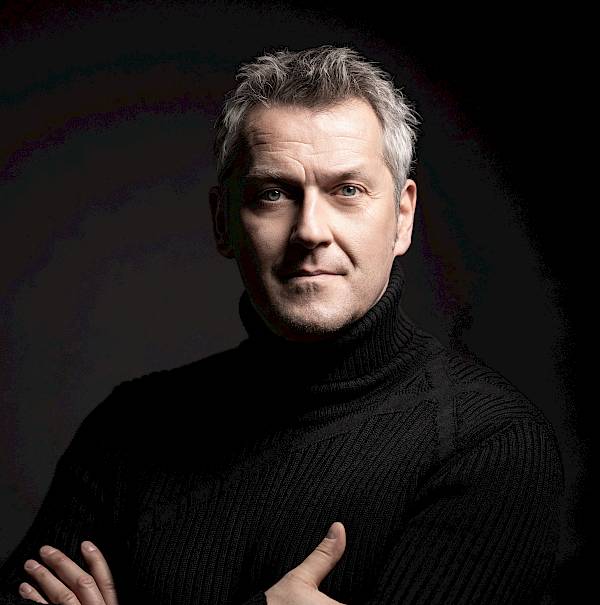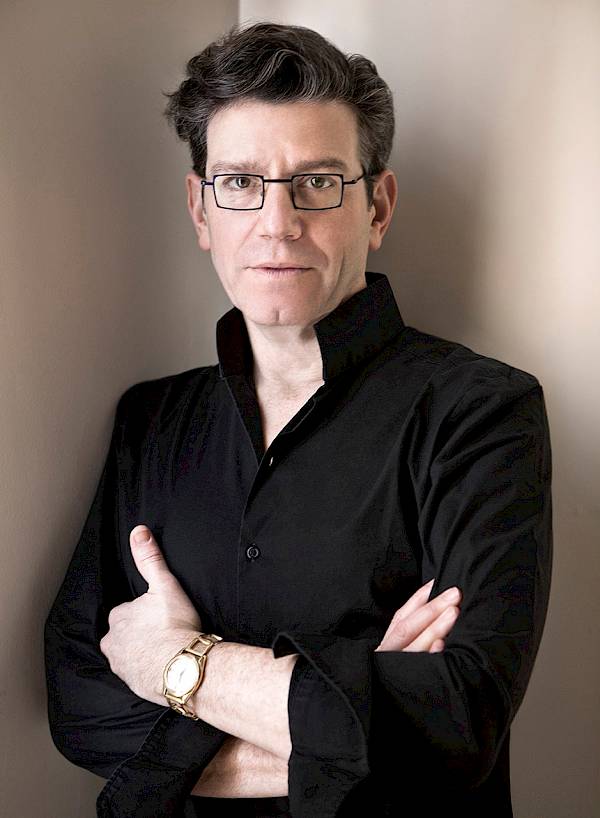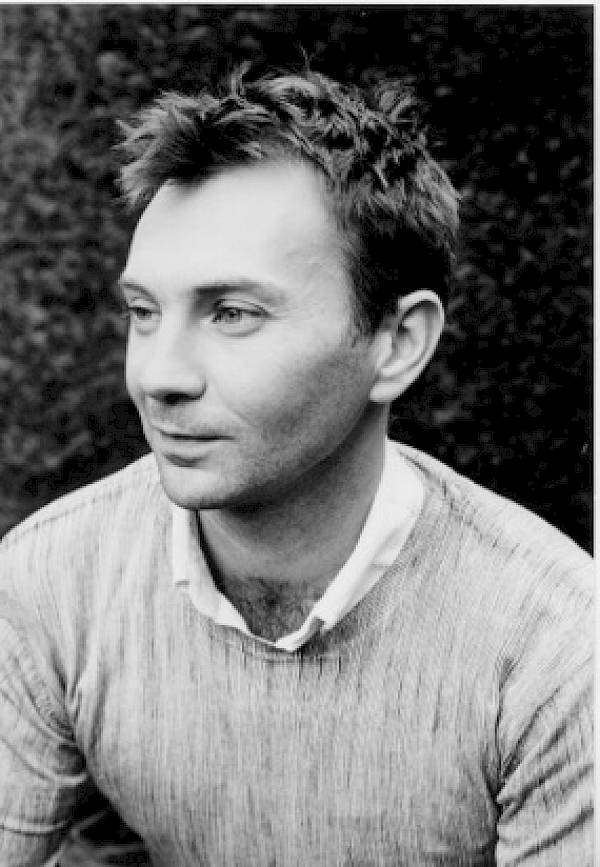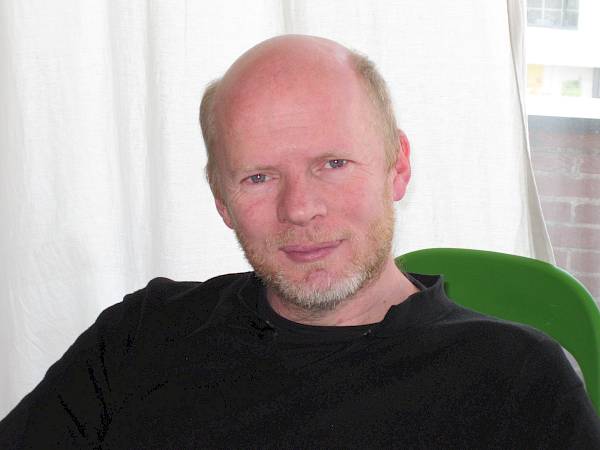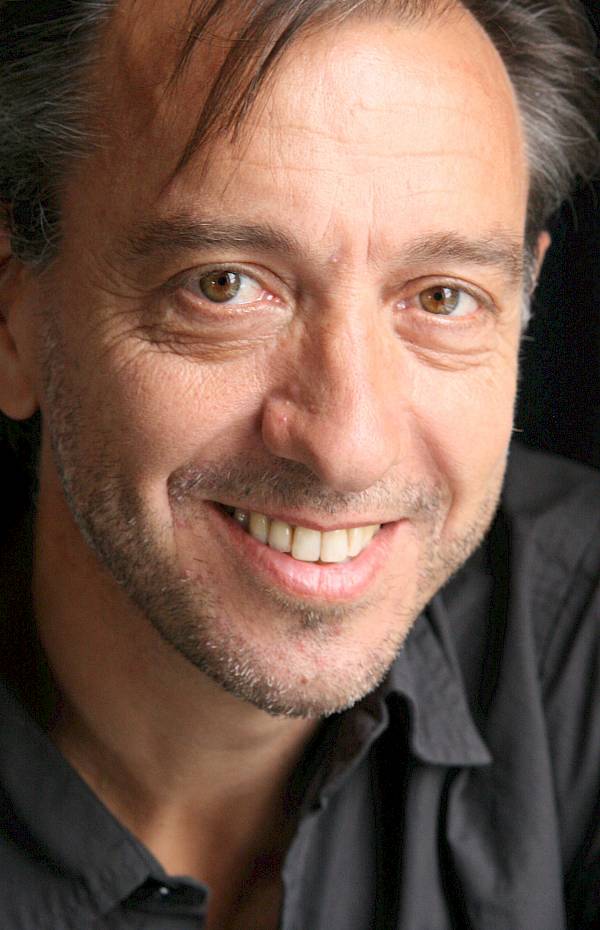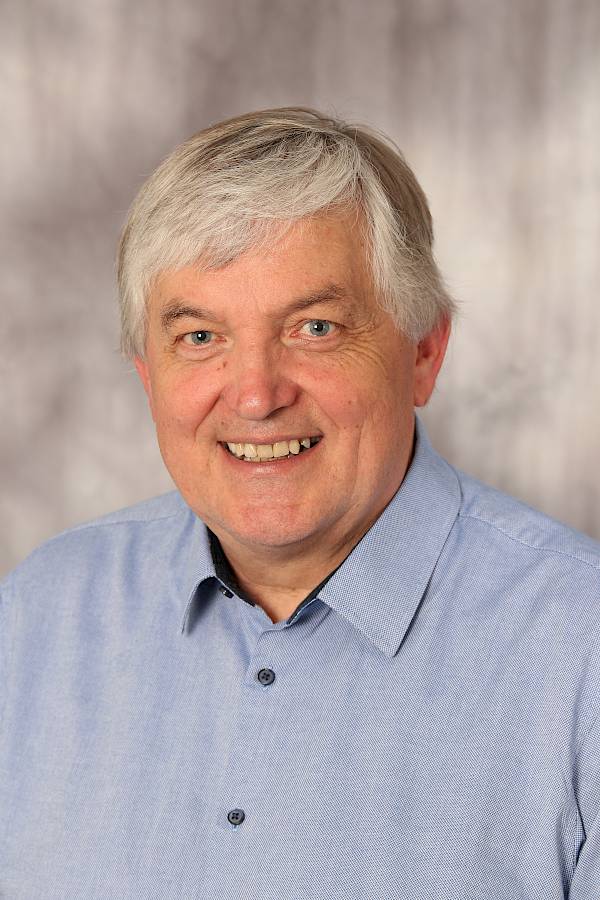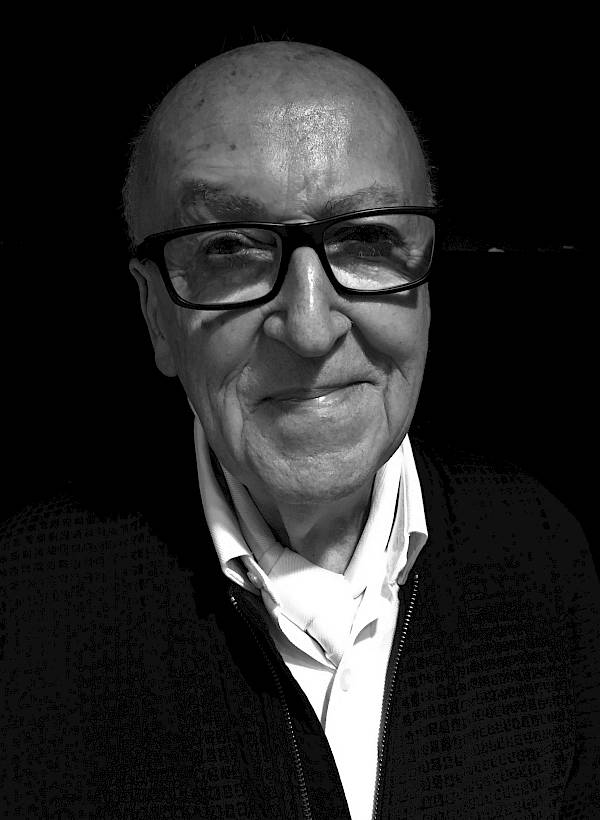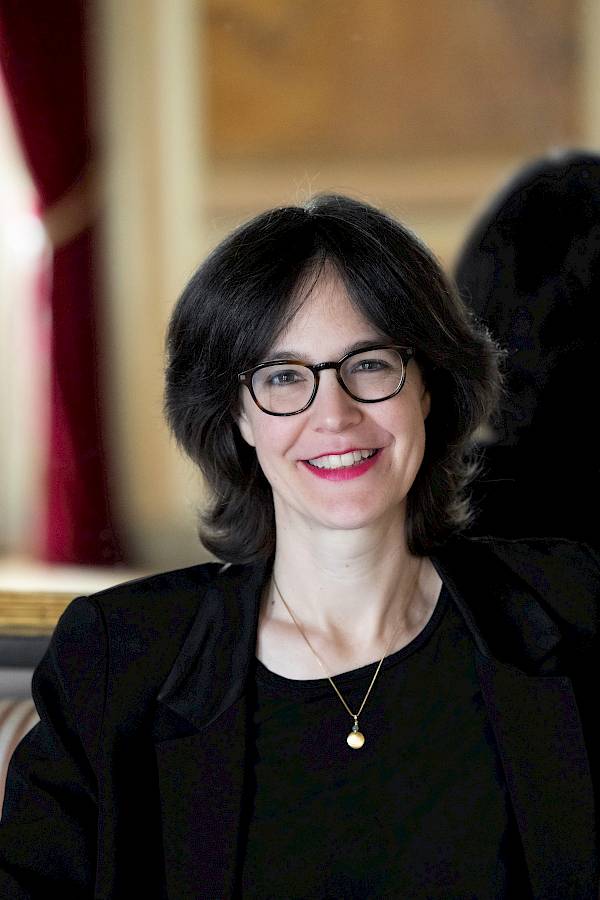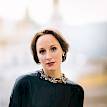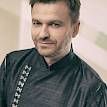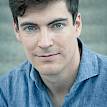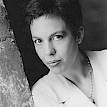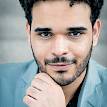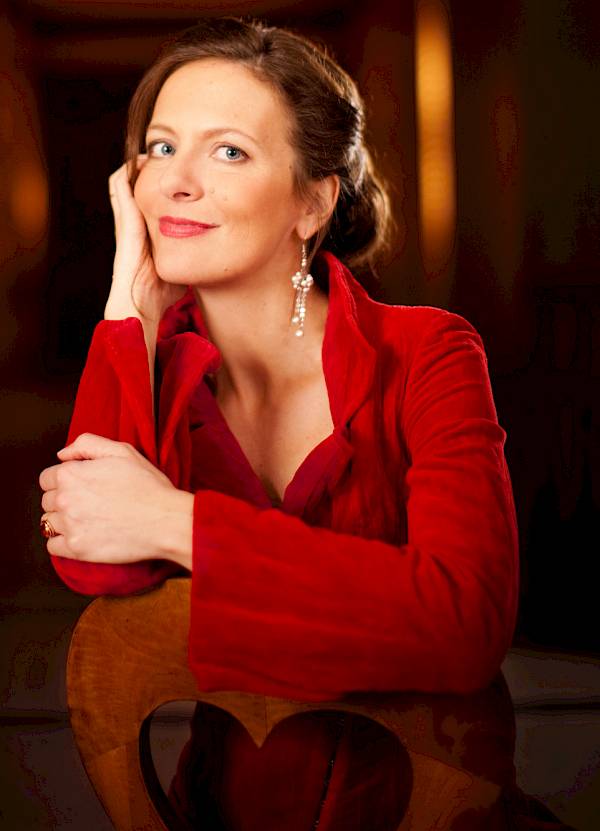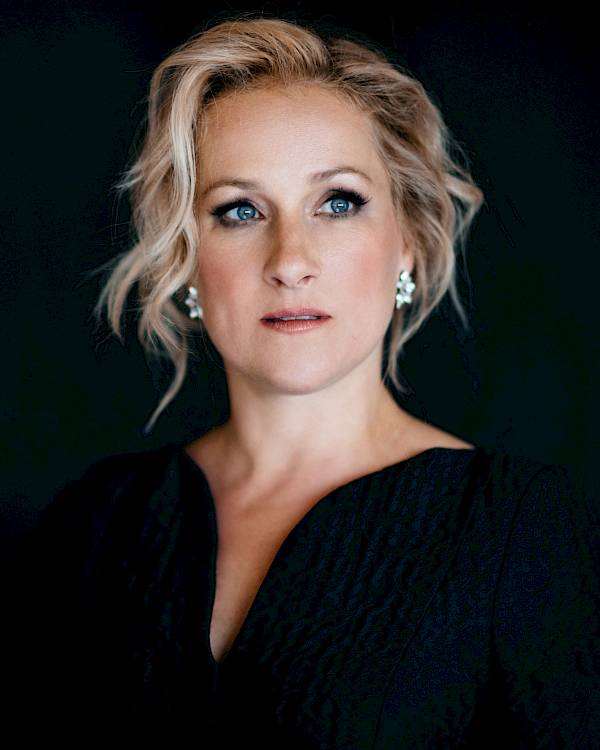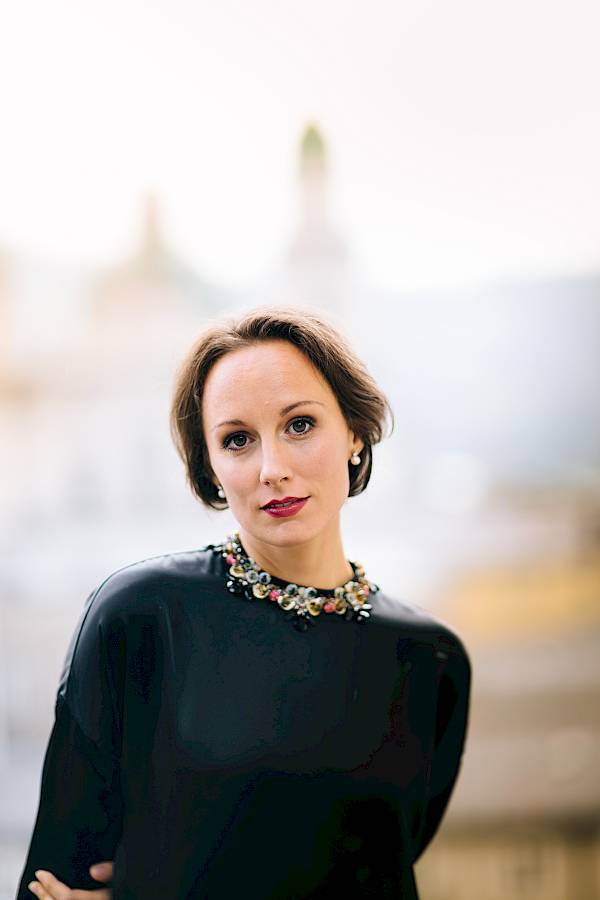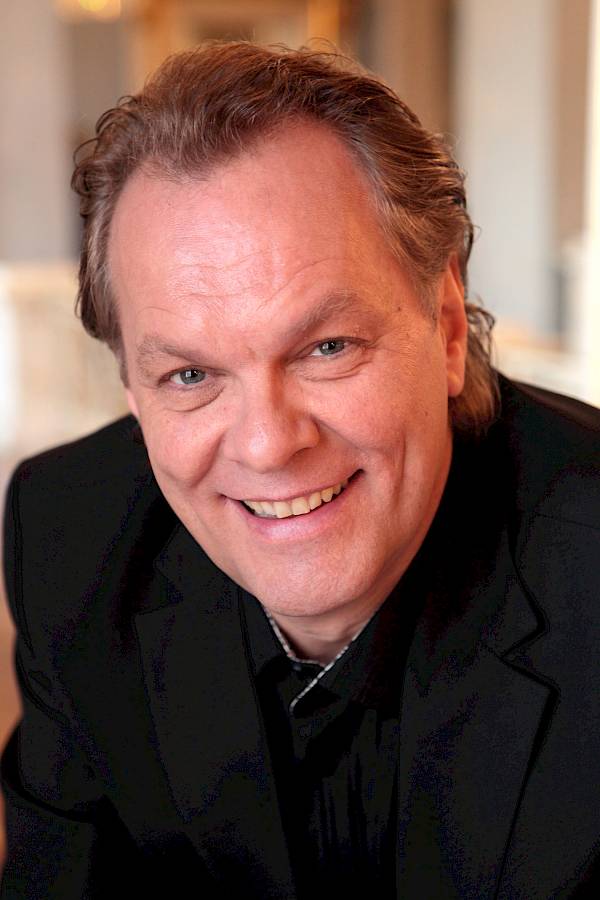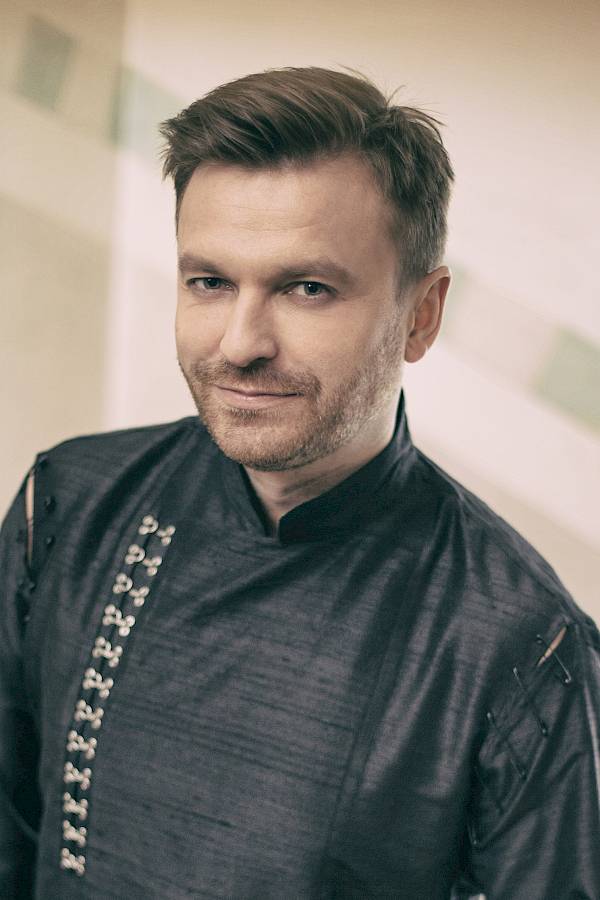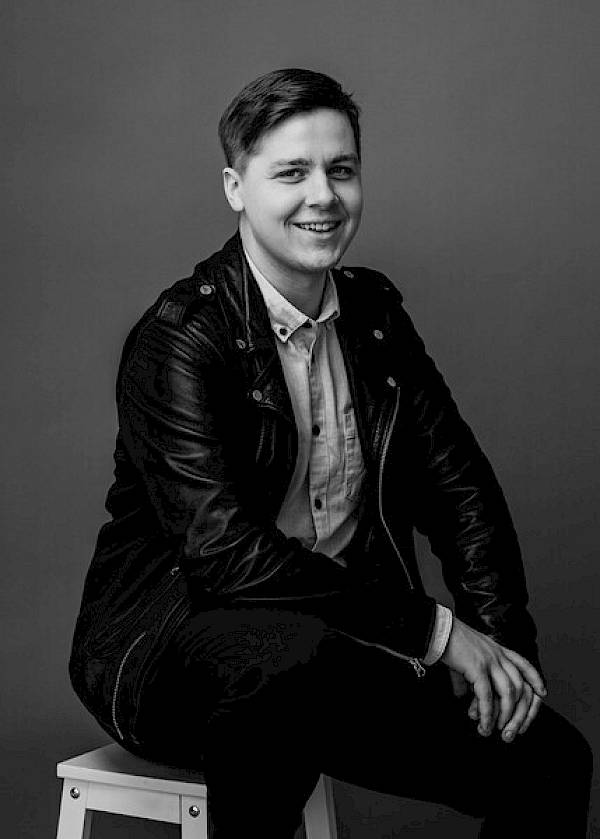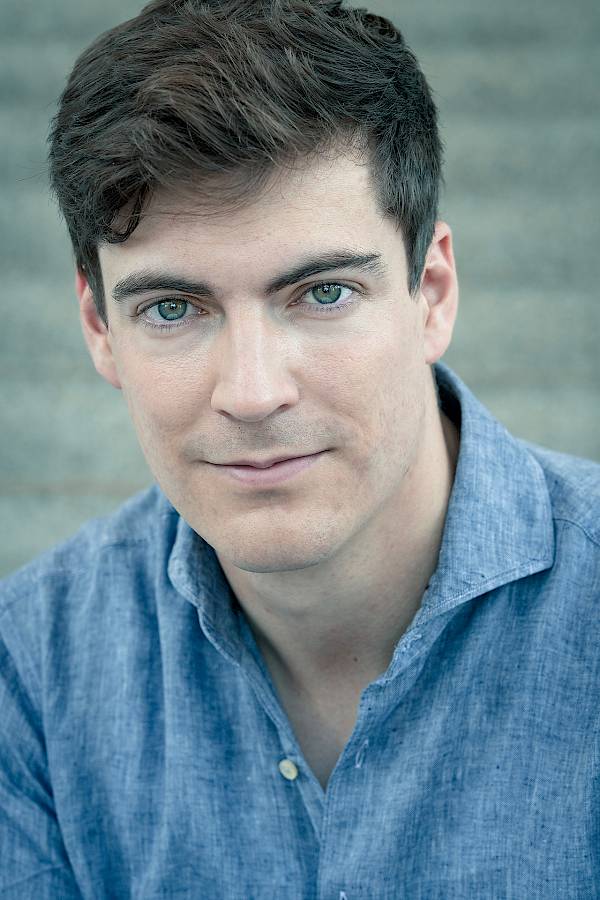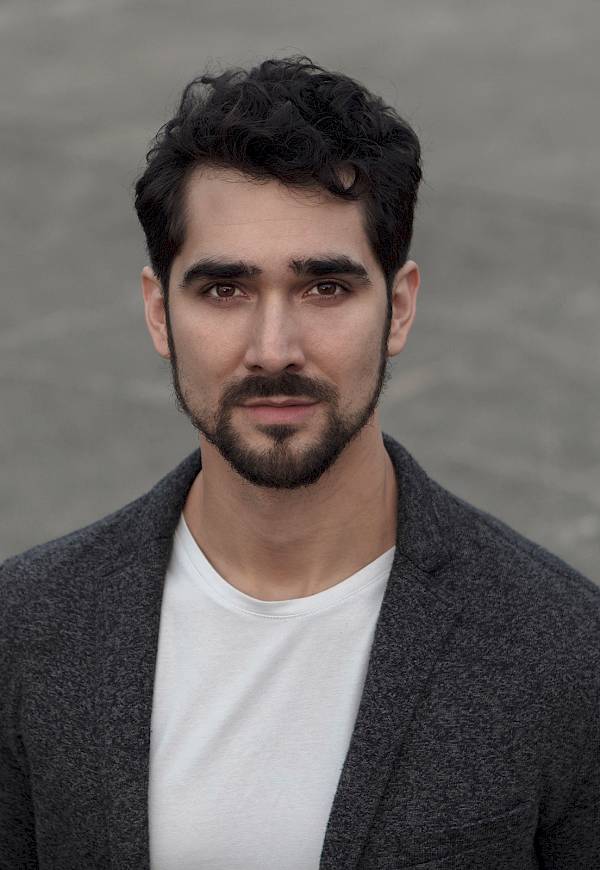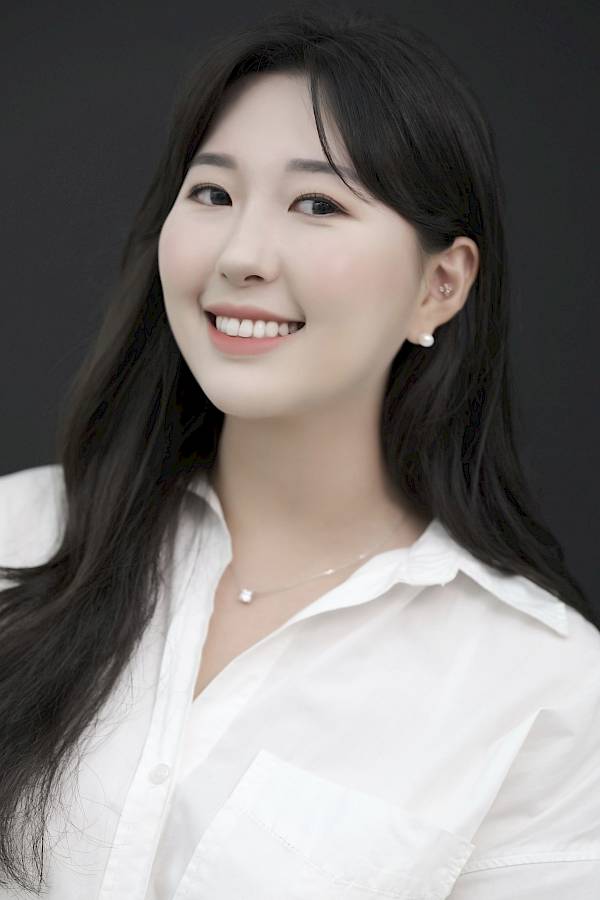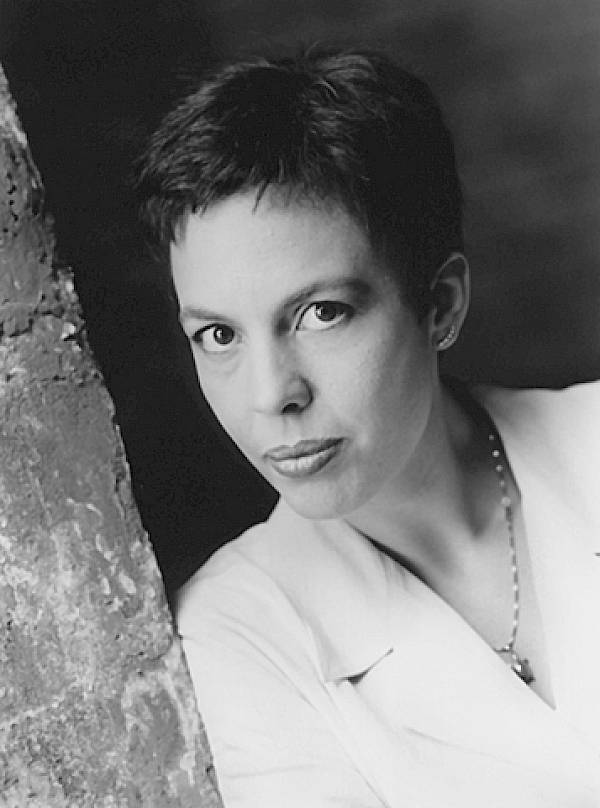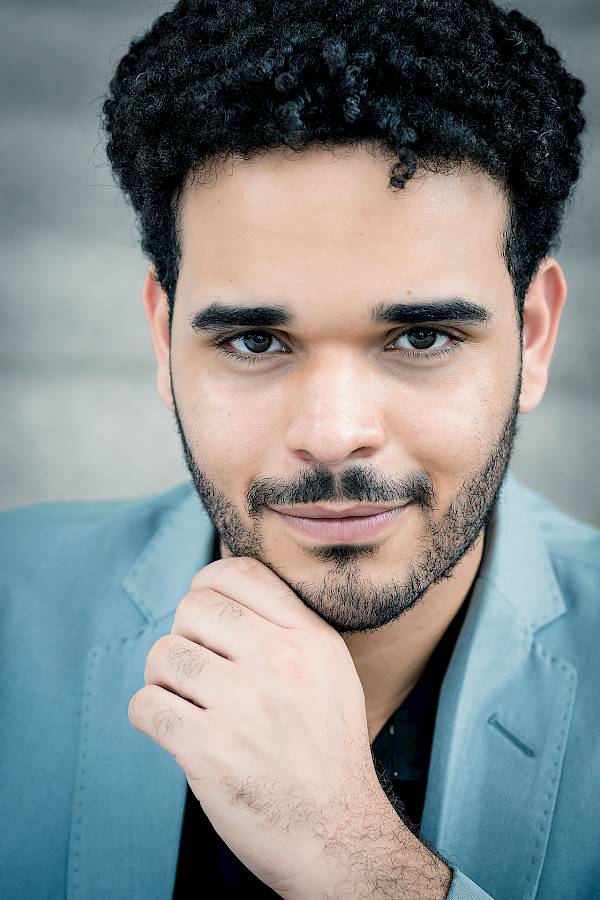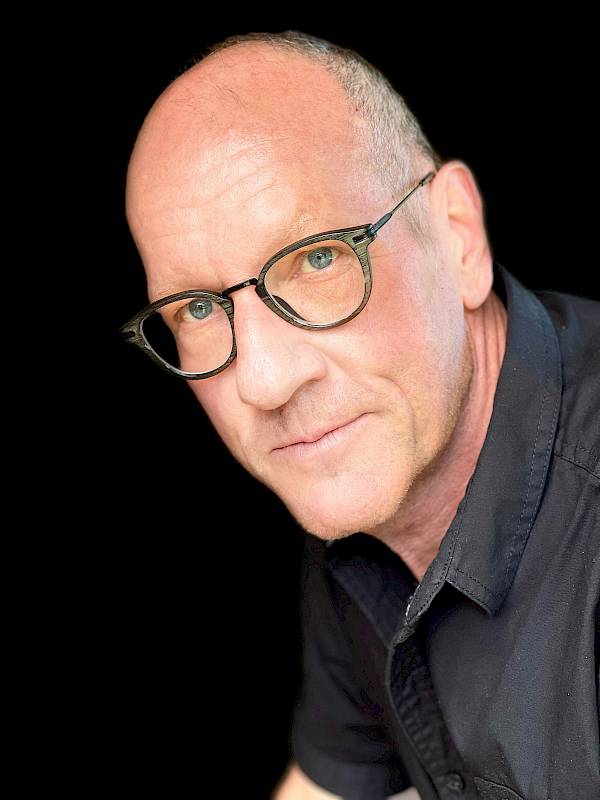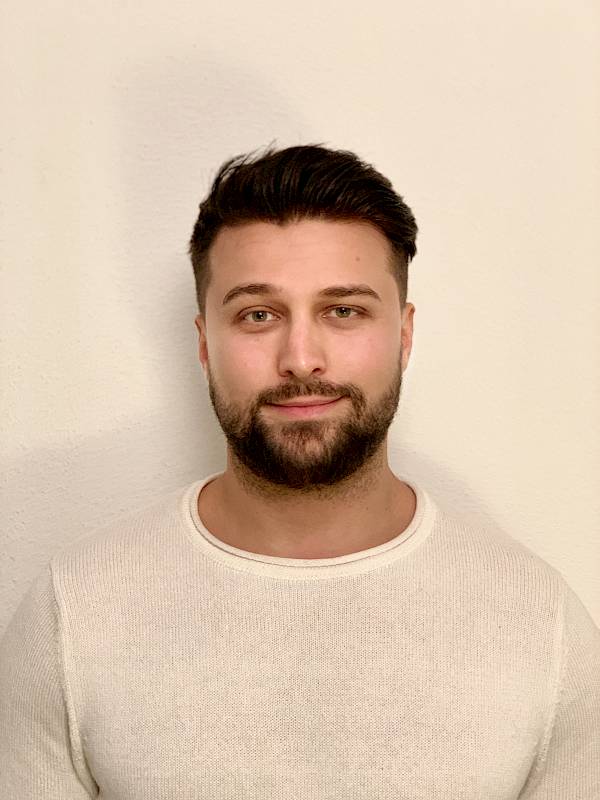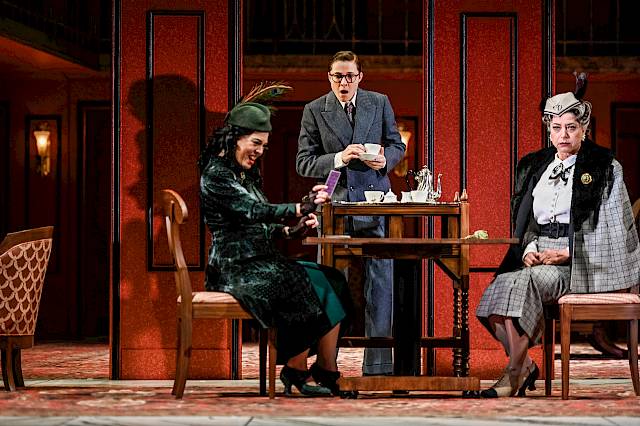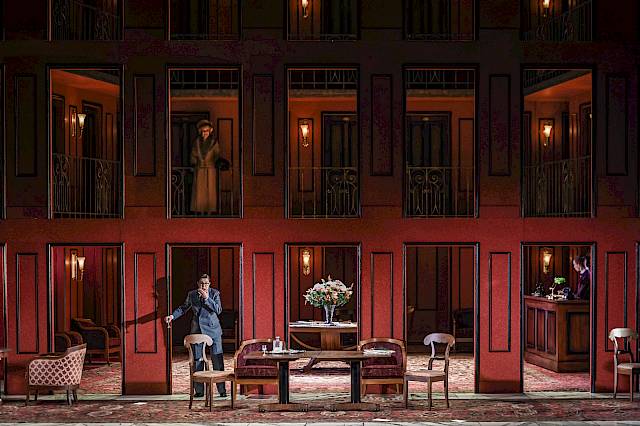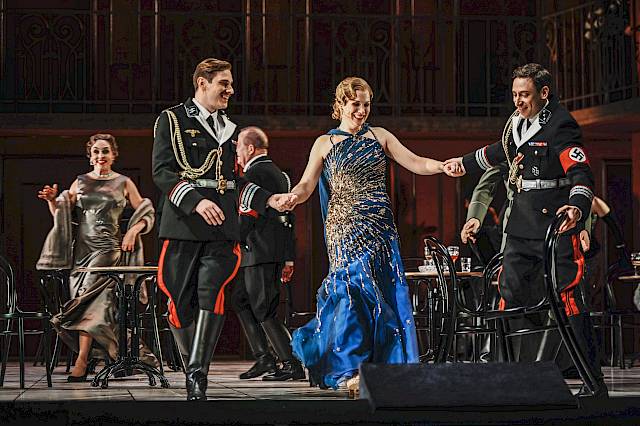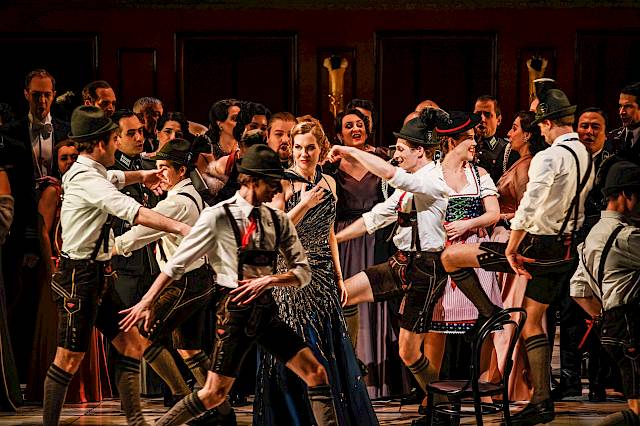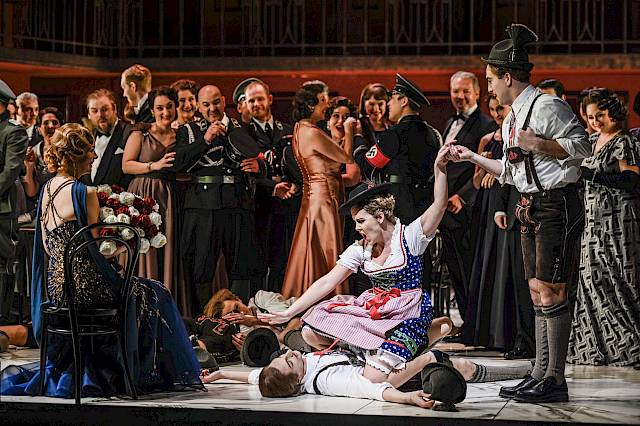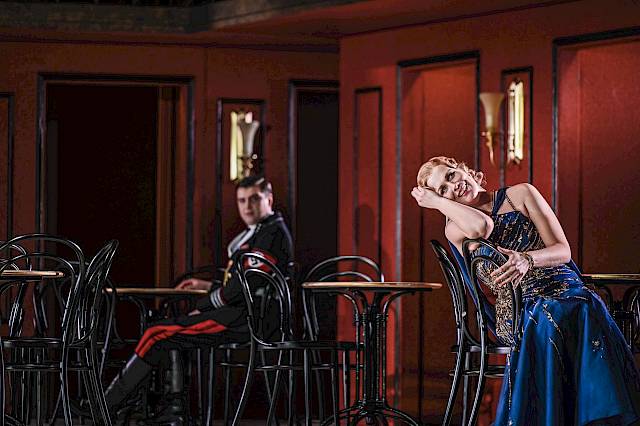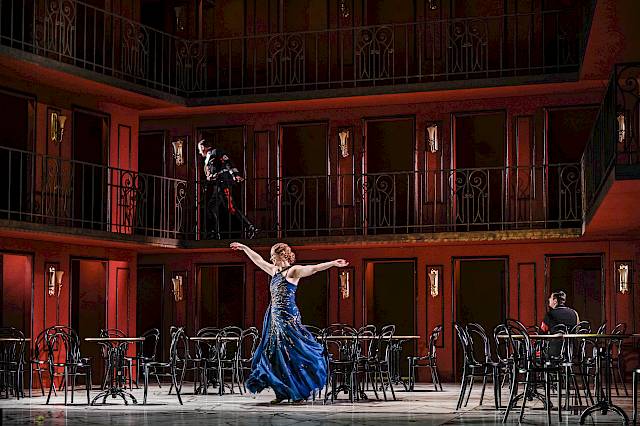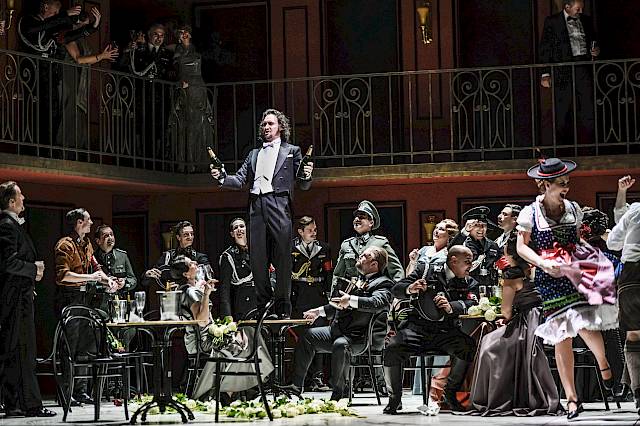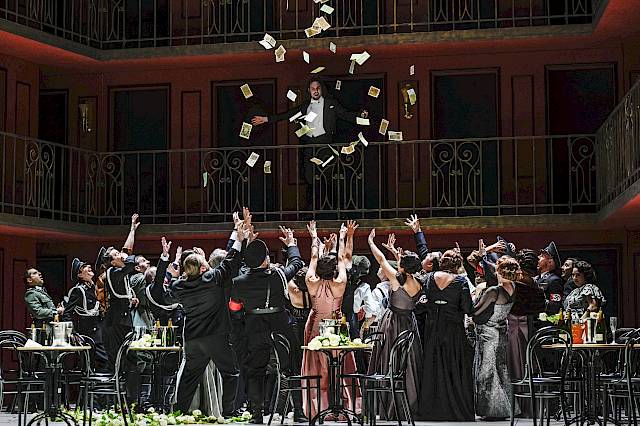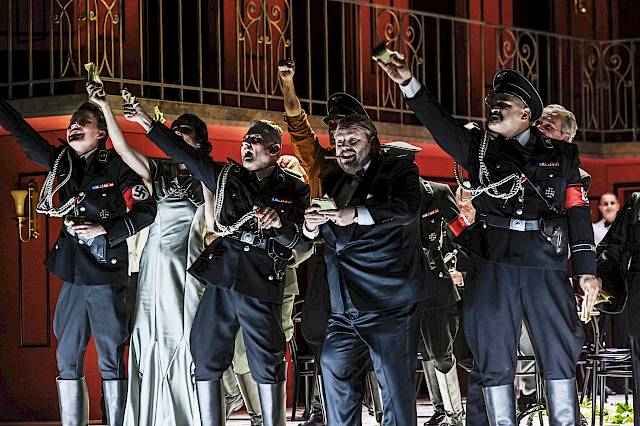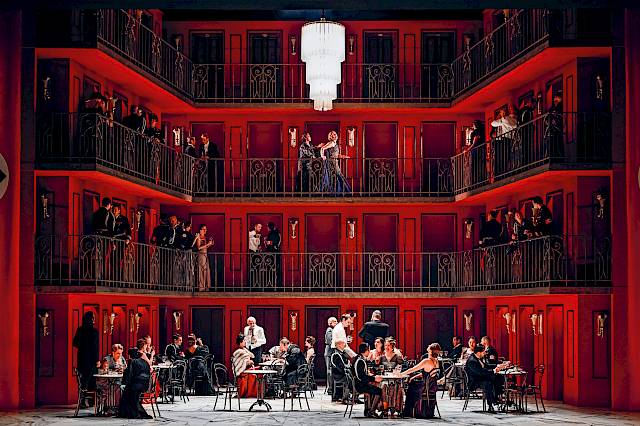Discover the heart of every story: Our synopses provide guidance on the plot and the conflicts that drive its characters.
Act One
As a result of his gambling addiction, Count Waldner’s family is on the brink of financial ruin. With debtors breathing down their necks, they have been reduced to lodging in a hotel in Vienna. The Count and his wife have placed all their hopes in their elder daughter Arabella, whom they intend to marry off to a wealthy suitor at the earliest opportunity. In public, their younger daughter, Zdenka, is passed off as a boy by the name of Zdenko, as the family does not have the means to keep two daughters in a style befitting their social status.
On the one hand, the girls’ mother Adelaide learns from a card reader that Arabella is destined for a wealthy bridegroom, but that the connection will be put at risk by her younger sister. On the other, Count Waldner has taken the initiative and sent a letter to an old, extremely rich chum from his regiment, enclosing a picture of his elder daughter.
Arabella is surrounded by admirers, including Counts Elemer, Dominik and Lamoral, who compete for her favour. The penniless officer Matteo, with whom Arabella has had a brief liaison, continues to carry a torch for her. He is confused by Arabella’s cold behaviour, as he has been receiving passionate love letters from her for some time. Matteo, however, is unaware that the letters are in fact from Zdenka, who has fallen in love with him, but has been masquerading as Arabella’s brother and his ally. Arabella, who has no profound feelings for her admirers, doesn’t bring about any decision for the time being, but she does tell Zdenka about an unknown man whom she has seen near the hotel and whose gaze has touched her very deeply.
A certain Mandryka presents himself to Count Waldner. He is the nephew and heir of Waldner’s since deceased regiment chum – and the stranger whose gaze has had such a curious effect on Arabella. Mandryka opened the letter to his uncle and immediately fell in love with Arabella’s picture. He has travelled to Vienna from distant Croatia to ask Count Waldner for Arabella’s hand in marriage. Given the fact that he has – at least for the time being – helped Waldner out of his financial embarrassment, he is certain of his consent. And Waldner is only too pleased to introduce his daughter to Mandryka at the Fiaker Ball the same evening.
While Arabella is waiting for Zdenka, her thoughts revolve around her future – and her very different feelings for Elemer, Matteo and the unknown man.
Act Two
The first encounter between Arabella and Mandryka at the ball brings about a rapid decision. Arabella and Mandryka sense that they are destined for one another. Mandryka tells Arabella about an ancient custom in his homeland, whereby a girl gives her bridegroom a glass of water from a fountain as a symbol of their betrothal. They swear unconditional loyalty to one another.
Within the next few hours, Arabella intends to bid farewell to the three counts – who have Fiaker-Milli crown her as queen of the ball.
Matteo is in despair over Arabella’s ignorant behaviour and decides to go away in order to forget her. Zdenka follows him, but instead of the promised letter hands him an envelope with the key to Arabella’s room. Zdenka intends to wait for him there in the dark – disguised as Arabella.
By chance, Mandryka has overheard their conversation and feels betrayed. When he learns that Arabella has left the ball and returned to the hotel, he sees his suspicions confirmed. He loses his composure and starts flirting with Fiaker-Milli. The mood at the ball becomes increasingly exuberant. Confronted by Adelaide, Mandryka plays the cynic. Count Waldner banks on being able to clarify the misunderstanding immediately and to find out what has happened from Arabella herself at the hotel.
Act Three
Arabella returns from the ball in the early hours of the morning. She encounters Matteo, who is stunned to see her in the hotel foyer – having been lying in her arms only a few moments ago. For her part, Arabella understands neither his behaviour nor his suggestive remarks – a heated argument ensues.
At that moment, Arabella’s parents appear, followed by Mandryka, whose suspicions are confirmed when he encounters Arabella with Matteo.
Although Arabella is unaware of any wrongdoing, all the evidence appears to be unequivocally against her. Nor do Matteo’s reactions help to clarify the matter in any way. The situation escalates, and there is almost a duel. Only when Zdenka rushes in and reveals herself to be a woman is the misunderstanding clarified. Mandryka is deeply ashamed and requests Zdenka’s hand in marriage on behalf of the completely overwhelmed Matteo.
Arabella retires to her room. In despair, Mandryka believes that he has lost her for ever. However, to his astonishment, she returns and hands him a glass of water, as is the custom in his village. The lovers are now “engaged and united, in sorrow and joy, in transgression and forgiveness.”


